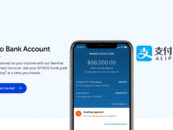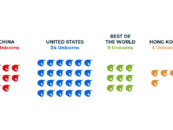Seeing the popularity of WeChat Pay and Alipay in China, it is easy for some to assume that these mobile payment apps are equally popular in Hong Kong.
Unlike China, Hong Kong is still largely a very cash dominant society. When it comes going cashless Hong Kongers lean towards credit cards and the ever reliable Octopus Card.
Octopus Card Remains a Popular Option for Hong Kongers

Next to cash, Octopus Card is among the most popular method to pay in Hong Kong. Introduced in 1997, it has since issued more than 35 million Octopus Cards, with an impressive record of having 99% of its citizens aged from 16 to 65 using its card.
Since its introduction Octopus Card, it has quickly become a vital part of a Hong Konger’s life, it has made payments for public transportation, tolls, parking and retailers far more convenient.
Beyond that, the card has recently expanded its payments option to be made available to some taxis in Hong Kong via the Octopus Card’s O!ePay business app or WeTaxi app.
A victim of its own success, the popularity of Octopus was cited by some as a reason why Hong Kong was slow to explore other payment options.
As the city wakes up to the technological development and ambitious entrepreneurs attempt to tap into this gap, mobile payments are slowly on the rise in Hong Kong.
Mobile Payments Players are Attempting to Change the Game

With many players entering the game, Hong Kongers are spoilt for choice when it comes to mobile payments. The apps are generally categorised by whether it stores money or not.
Mobile payments apps that store money, otherwise known as SVF (stored value facilities) are regulated by HKMA, which includes player like TNG Wallet, PayMe, Alipay HK, WeChat Pay , Tap N Go.
Whereas other mobile payment apps like Apple Pay, Google Pay, and Samsung Pay do not store values, hence they do not require a license to operate in Hong Kong.
Linking a credit card is the easiest way to start using any mobile payment apps. Some digital wallets allow top-ups from bank transfer, but it is often limited to a few banks. For example, Alipay HK only accepts bank transfer from Standard Chartered Bank. The other option is to top up by cash at convenience stores.
Living the Cashless Life in Hong Kong
While there’s a concerted push from the fintech entrepreneurs and regulators for Hong Kong to go cashless, the growth of SVF accounts from 2016-2017 has only shown a 15.4% growth signalling a need for a stronger push to make a cashless Hong Kong a reality.
Interestingly but unsurprisingly, an area where mobile payments really thrive in Hong Kong is in P2P fund transfers where it has seen a staggering growth of over 900%.
Though Hong Kong is seen to be a laggard in comparison to mainland China, hope is not lost, a recent survey by HKIRC indicated a generally positive outlook towards the use of mobile payments.

The introduction of the virtual banking license will also likely accelerate the general public’s comfort level with utilising digital technologies to manage their money, which in turn will likely drive up the adoption of mobile payments in Hong Kong.
All in all the future of a cashless Hong Kong seems bright if both the regulator and fintech players play their cards right.









